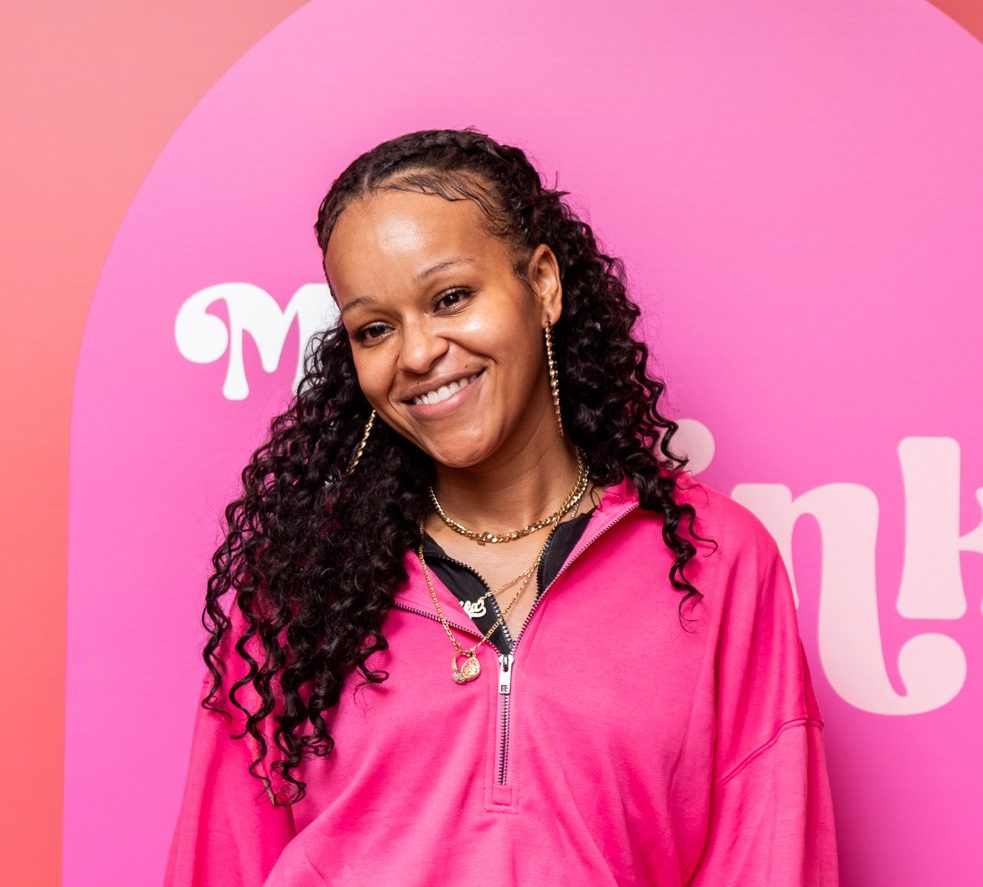In the summer of 2020, I was going to the beach and putting my two-piece on—that’s when I saw pus on my breast, and I thought, “What the hell?” I still went to the beach, but when I came back, I noticed a hardened rash on my nipple and thought, “Oh, that’s weird.” It persisted and began to itch and bleed. My breast felt heavy.
This was during the pandemic, and it took three months to get my first doctor appointment. The doctor told me, “It’s probably the detergent you’re using, or something you’re eating.” She told me to use a hypoallergenic detergent. I did that, then came back a couple months later; the rash was still there. She gave me cortisone, a type of steroid, but that didn’t do anything, either.
Eventually I got a referral to a dermatologist. By then, I’d done my own research online and I knew a rash could be a symptom of breast cancer. I said that to the dermatologist and he said, “Oh, you’re young. This is not breast cancer. This is just eczema.” And I thought, “Oh, OK. I’m not the doctor.” He gave me a steroid shot. The itching went away, but the rash was still there. And it was getting bigger. The discharge got so bad I would put tissue in my bra, because it would seep through to my shirt.
At my annual OB appointment, I brought it up again: The doctor did a breast exam but didn’t find any lumps, so they weren’t concerned. I tried to go directly to the imaging center to get a mammogram, but they told me I needed a referral. I went to community clinics—there are mammogram buses that come around quarterly where I live—but they were for women 40 and older. I was only 30 at the time, then 31, so they turned me away. If I’d known what I know now, I would have lied.
In June of 2022, I was running errands with my mom. We were in the car and I was telling her about my breast, and how I still hadn’t gotten a mammogram. My mom insisted we go to my primary care physician and demand a referral. She drove us there and was in the background going crazy while I said to the person at the front desk, “My nipple is deteriorating and no one is giving me a referral for a mammogram. They’re telling me that I’m too young, but something is wrong and this is the only thing that I have not done.”
I got the referral. Two days later, I went to the hospital. The doctor immediately said, “You’ve been going through this for so long and haven’t had a simple mammogram?” When he saw my breast, he said, “Okay, I’m going to order a mammogram and an ultrasound and we’re also going to do a biopsy.” A couple days later, I got the results in my MyChart: It said invasive ductal carcinoma. I had cancer. My head was spinning. We went back to the doctor and he explained everything. There was so much information coming at me, but all I could think was: “I knew it. I f—ing knew it. I knew I wasn’t going crazy.” I had stage 3, grade 3 triple-negative breast cancer.
There was so much information coming at me, but all I could think was: ‘I knew it. I f—ing knew it. I knew I wasn’t going crazy.’ I had stage 3, grade 3 triple-negative breast cancer.
Treatment was hard, mentally and physically. Being sick, dealing with my changing physical appearance, trying to be a mom at the same time. I couldn’t do my daughter’s hair because of neuropathy, a side effect of chemotherapy. I would often sleep on the bathroom floor. On Instagram, everyone was living their lives—having career boosts, getting married, going on vacation—and I was stuck. I went through menopause at the same time as my mom. In March 2023, I had a double mastectomy, and then I began immunotherapy. After my surgery, I couldn’t look at myself for a really long time. People say, “Put cancer behind you,” but breast cancer is in front of me. I have to look at it. I’ve now been in remission for two years, and I’m going to have breast reconstruction in a couple months.
Advocacy naturally fell into my lap. I was just sharing my story online, telling people what happened to me so it didn’t happen to them. Over the course of two years, I went to at least 50 doctor appointments, including virtual appointments and my visits to community clinics, before I got a diagnosis. I wanted to leave a blueprint for my daughter. I wanted women of color to have visibility in the breast cancer world. I wanted people to know you can look like me—Black, young—and still have breast cancer. I started to volunteer with different organizations, and I’m now a full-time breast cancer advocate and policy lobbyist.
When I think about what I’ve been through, it feels surreal: I can’t even believe that was me. Now I can look at myself. I’m not going to say it’s always great, but I’m glad that I’m here. I’m having Thanksgiving at my house this year—two years ago I was too sick to be with my family. I see things differently now, and I have so much gratitude.
This interview had been lightly edited and condensed.
Do you have a personal essay you want to share with Newsweek? Send your story to MyTurn@newsweek.com.
Read the full article here

